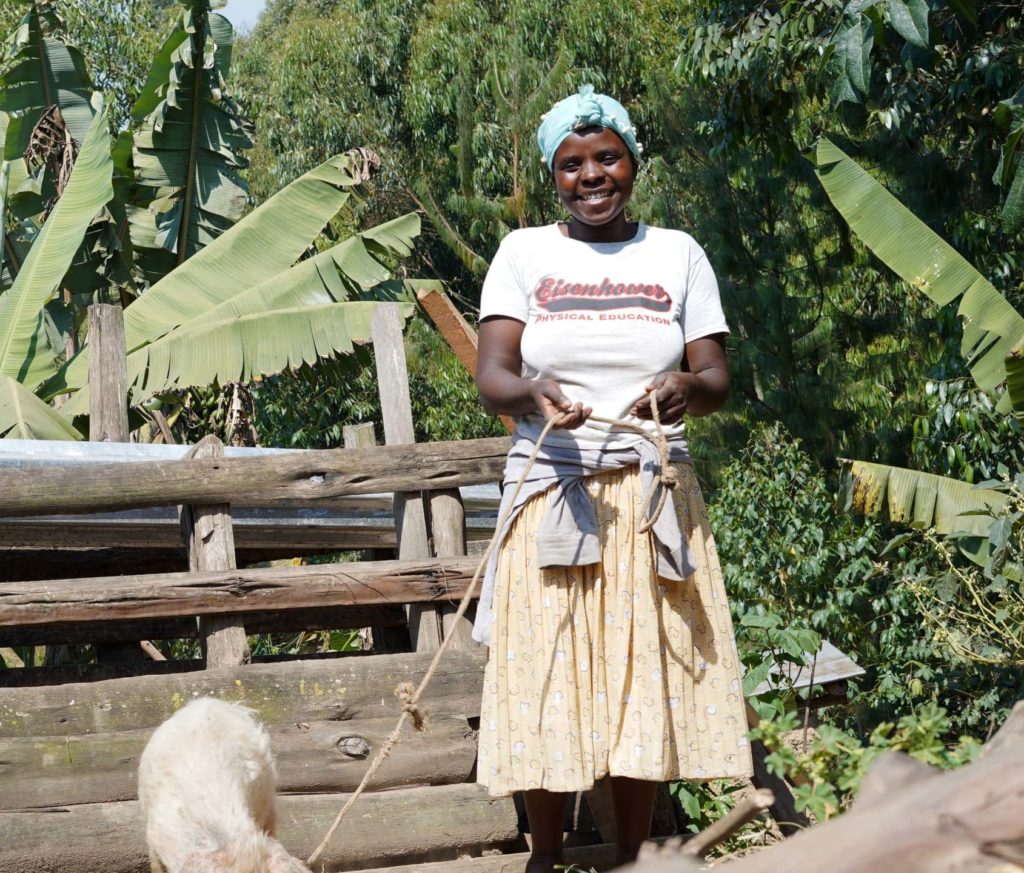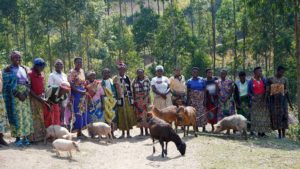Empowering Youth in Uganda’s Last-mile Communities
Evelyn is a 28-year-old mother who is determined to give her children a better life. Along with her husband, she raises her children at their small home in Karondo, a last-mile, ultra-poor community in Rubanda District in Uganda.
Like most families in rural Uganda, they rely on their small garden to feed their children, and when possible, to generate income from selling surplus crops, so they can cover other basic needs.
Youth and young mothers like Evelyn face unique challenges. The country has the youngest population in the world, with ~70% of the population under the age of 25. Employment opportunities are rare, and the Food and Agriculture Organization of the United Nations (FAO) estimates a striking 60% of the country’s unemployed are youth. A lack of economic opportunity is often coupled with strained social and economic services, and regularly threatens to push mothers like Evelyn further into the cycle of ultra-poverty.
“The few youth who are lucky to find casual work opportunities end up spending their little earnings,” Evelyn shares. Small income typically goes towards basic needs, and youth grapple with limited experience and minimal guidance on financial literacy and planning for the future. As they struggle to invest in the foundations needed for economic security, their children feel the impact, and the cycle of poverty continues.
But Evelyn is committed to changing this.

Evelyn holding her pig that she just received from her VSLA in Karondo village, Rubanda district.
“I insist on taking my kids to school so that they can make a decent living in the future,” she says with determination.
Raising The Village’s holistic “Secure, Improve, Sustain” program has specific areas of focus to support women and youth, who often face barriers with time and access that hinder their ability to fully participate in income-focused programs. In Karondo Village, Evelyn and her peers are now participating in training sessions focused on organic agriculture, mindset change, water and sanitation, and improved health. Additionally, the community is engaged in a financial literacy training program—including a youth-specific Village Savings and Loan Association (VSLA).
“RTV’s financial literacy experts shared with us the knowledge of starting our own informal financial institutions,” Evelyn shares. “That’s how we started our VSLA.”
To further strengthen youth empowerment, Raising The Village intentionally supports youth leadership at the community level. With this model, RTV-initiated groups ensure at least 20% representation of youth in leadership positions. This enables young voices to participate in decision making, which builds inclusion and sustained success.
For Evelyn and her young peers, this ensures their ability to access financial services and training. This, in turn, resulted in youth VSLA members launching income-generating initiatives that help them secure income, food, and basic needs for their households. They are investing time and resources into improved agriculture. Many have invested in livestock, which improves crop yields by creating organic fertilizer from their waste, enhances their food security, and generates income from selling their offspring. In 2021, RTV’s partner youth-headed households increased their livestock ownership by 204%, compared to a 37% growth for the peer group.

VSLA members with the livestock they recently purchased as a group initiative.
“With the support of this VSLA, I was able to buy a pig —and that’s only the beginning of my business!” Evelyn exclaims. She plans to sell her pig’s offspring and use the proceeds to further invest in her livestock business, with the goal of buying a cow next.
“This group has really helped the youth and women of this village. Many had lost hope in ever starting their own initiatives, but saving money together as a group has been a great motivation for us,” Evelyn explains.
By ensuring inclusive programming for youth in its programs, RTV ensures that the upcoming generation has the tools they need to build a sustainable, stable, and more promising future. For young mothers like Evelyn, this means the beginning of a pathway out of ultra-poverty—not just for her, but for her entire family.

